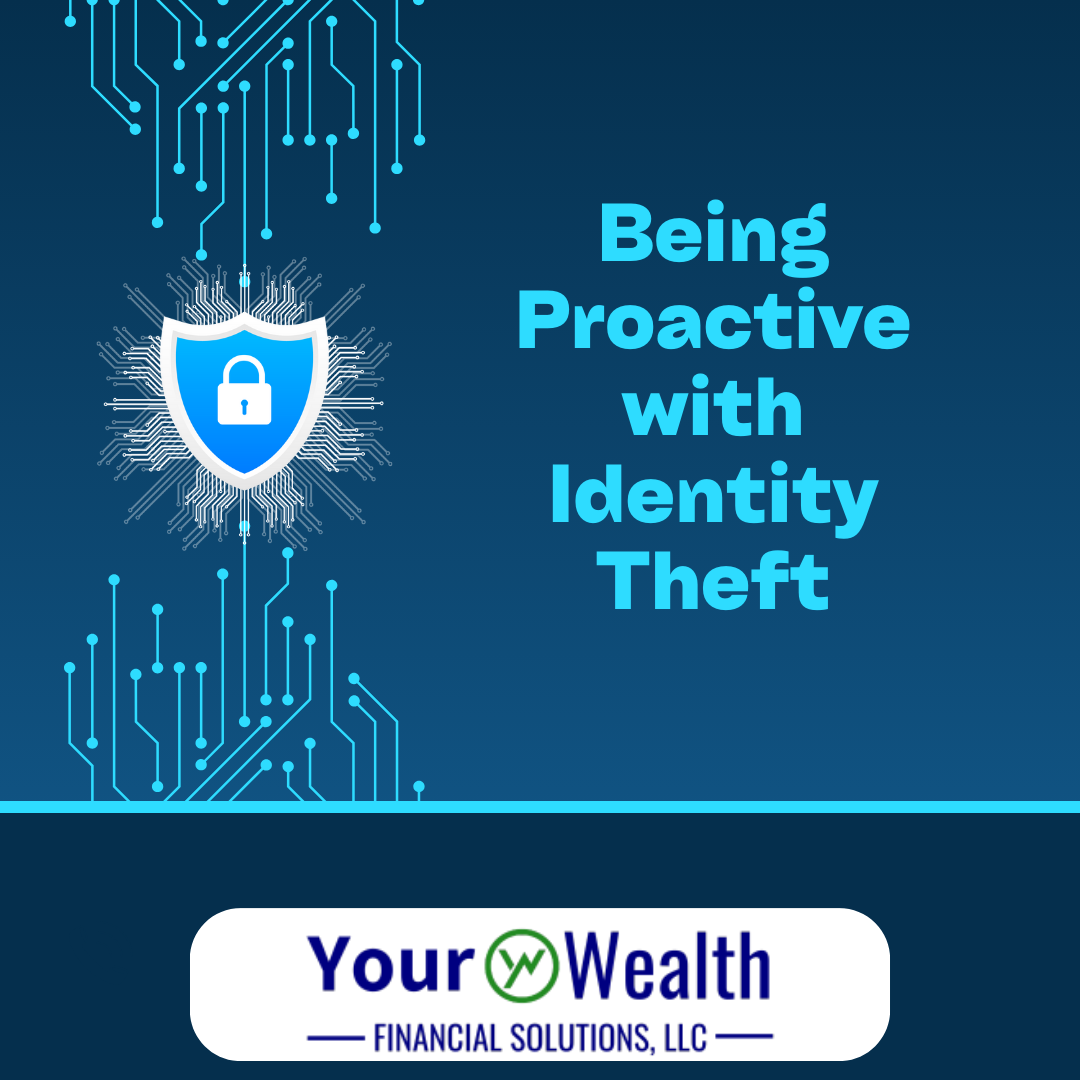Unfortunately, it is increasingly common for people to discover that their social security number is on the dark web. This makes sense since there has been a rise in the number of data breaches in recent years and it is becoming harder to identify scams since scammers use technology to look professional and sophisticated. But just because it is more common, doesn’t mean it is less scary. Let’s discuss the steps to try and prevent identity theft and what to do if it does happen to you.
Take these steps to help prevent identity theft AND take action if/when your identity is stolen.
- Sign up for Identity Theft Protection. There are a lot of companies that provide this service and they all have slightly different features that they offer. I use Zander Insurance for my Identity Theft Protection. What I like about them is they not only monitor your data to alert you of anything that happens but they also provide a recovery specialist to help you restore your identity if it is stolen. They offer other benefits for some of their plans as well including but not limited to identity monitoring for your children too (with the family plan), a VPN, and a password manager. Whether you use Zander or another service, ensure you understand the services available because all identity theft services are not created equal. It is helpful to understand the cost and coverage to make the decision that is best for you and your family.
- Freeze your Credit. You can place a credit freeze on all 3 of the credit bureaus. It is recommended to do all 3 in case someone only runs it through one bureau. Placing a credit freeze should eliminate the ability for someone to take out a credit card or other loan in your name.
- Set up a Fraud Alert. As an added layer of security to the credit freezes, you can set up a fraud alert. With this fraud alert, the credit card company or loan provider would call the number listed on the fraud alert (your phone number) instead of the potentially fraudulent number on the application being submitted by a scammer.
- Place a freeze on ChexSystems. This is the system that most banks use when opening a bank account so placing a freeze here would hopefully eliminate bank accounts from being fraudulently opened in your name.
- Add additional security to your bank accounts and investment accounts. Call your bank, 401(k) provider, and financial advisor to set up additional passwords/pins, security questions, or voice recognition as an added layer of security.
- Update your passwords. It is important to update your passwords on a regular basis (the more often, the better) but you should change them immediately upon discovering that your information was compromised.
- Use a Password manager. We all know how incredibly hard it can be to have secure passwords that you can remember. Especially in this day and age where you have passwords for just about everything, having a password manager is a great way to ensure that you have really strong passwords and you don’t have to dig through all those post-it notes on the refrigerator or in your junk drawer to find them!
- Run your credit report. This is something that should be done annually but immediately upon discovering that your identity was compromised. You are just looking at the report to confirm that everything looks as it should. If there is something on there that doesn’t look right to you, be sure to reach out to that company to dispute it.
- Review your online banking/ bank statements. This is something that should be reviewed monthly at a minimum but again, should be reviewed immediately upon your identity being compromised. Remember that debit cards have similar protections to credit cards in that if they were used fraudulently, you can call your bank and dispute the charge in order to get that money back.
- Alert your Financial Advisor and Tax Professional. Your Financial Advisor and Tax Professional should have processes in place to confirm your identity and only make changes once they have confirmed the request is coming from you but it doesn’t hurt to alert them that you had your identity stolen so that they can be on high alert for you.
Bonus Tip: Did you know you don’t HAVE to accept ALL the cookies on the websites you visit? Accepting all the cookies agrees to let them see a lot of your data so instead of just clicking ‘accept all’, next time click ‘manage cookies/preferences’ and only accept the ones you HAVE to accept.
Stay informed and vigilant
I don’t think we need to live in fear but rather the key to protecting our financial lives is staying informed and vigilant. In addition to the steps mentioned in this article, it is important to have a strong overall understanding of your finances, from where you have accounts, how much you have in them, and where you spend money. Remembering to do all of these tasks may seem overwhelming or you may feel like you don’t have the time to do all of them but adding them to your calendar and spacing them out throughout the year will help with that. Instead of taking a few hours all at once, decide to tackle one or two of these at a time.
If you have any questions that are specific to protecting your identity or anything else that relates to your finances please reach out to me. I would be happy to help you in creating a financial plan or to answer any financial questions you may have. Feel free to schedule a meeting with me at a time that is convenient for you.
This post is meant for educational purposes only and is not intended to provide tax, legal, or specific financial advice. Please consult the appropriate professional to discuss your specific situation.

